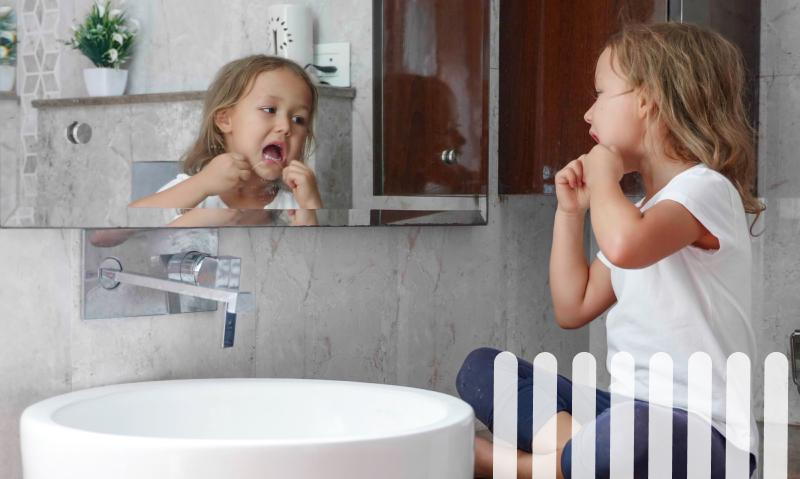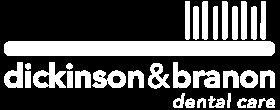
Increasing the efficiency of your oral care routine.
Just like any other part of your body, your mouth needs regular care to stay healthy. You’re likely familiar with the basic routine you should be following: brushing your teeth twice a day, flossing and using mouthwash at least once a day, and visiting your dentist twice a year. Even though this sounds simple, many people make simple mistakes during their oral hygiene routine that limit the benefits it can provide. Over time, this can lead to oral health issues even though you’re trying your best to take care of your teeth and gums. If you’re looking to improve your at-home oral care routine, here’s a breakdown of the perfect routine.
Use the best available tools.
The toothbrush and toothpaste you use to brush your teeth can actually have a significant impact on your oral health. When a toothbrush has bristles that are too rough, it can erode your enamel over time. This can cause tooth sensitivity and can worsen staining on your teeth as more of the yellow dentin begins to show from beneath your enamel. To prevent this, use a soft-bristled toothbrush to clean your teeth. You should also ensure that you’re using fluoridated toothpaste. Fluoride plays a crucial role in strengthening tooth enamel and actively helps your body to fight decay. Changing to a fluoridated toothpaste can make a surprising difference in your oral health.
Brush your teeth the right way.
Brushing your teeth may sound like a simple task—and in many ways, it is—but there is a right way and a wrong way to go about it. One of the biggest mistakes people make when they brush their teeth is rushing through it. It’s important to remove all the plaque from your teeth, so make sure you always brush your teeth for a full two minutes. Do your best to spend about 30 seconds on each section of your mouth and pay attention to what part of your tooth surfaces you’re brushing. Make sure to clean the outer, inner, and chewing surfaces of your teeth rather than just one side.
The best way to brush your teeth is to hold your toothbrush at a 45-degree angle to your gums, then use gentle back-and-forth motions across the length of your teeth. This angle, as well as simply taking the time to be thorough, will help you clean hard-to-reach parts of your mouth better. It’s important to be gentle, as scrubbing your teeth can cause enamel erosion and tooth sensitivity over time. It may feel like scrubbing gets your teeth cleaner, but it doesn’t—it’s actually better for your oral health if you’re gentle.
Replace your toothbrush often.
Worn toothbrushes get frayed bristles, which grow bacteria more readily—and that’s the opposite of helpful when you’re trying to use it to clean your teeth! Your toothbrush needs to be clean to do its job well, so it’s important to replace it regularly. Get a new toothbrush every three or four months—or at the first sign of fraying bristles. When you choose a new toothbrush, make sure you select one that fits your mouth well so that it’ll be able to reach and clean your back molars easily.
Don’t forget to brush your tongue.
Plaque also collects on your tongue, where it quickly spreads to your teeth and causes bad breath to return not long after you last brushed. As a result, it’s important to remember to brush your tongue as well as your teeth—it’ll help keep your teeth healthier and give you better breath for longer. Thankfully, brushing your tongue is simple and easy. Use your soft-bristled toothbrush and start at the back of your tongue, working your way forward with gentle, circular motions. You should brush your tongue twice a day—at the same time you brush your teeth.
Floss your teeth daily.
If you don’t floss, you’re missing out on cleaning the sides of your teeth and removing plaque from your gum line, allowing food debris and plaque to collect on your teeth and around your gums. This can lead to major oral health issues, from cavities to gum disease. Flossing is a vital part of your at-home oral care routine because it’s the best way to prevent gum disease. It doesn’t have to be time-consuming or painful, either—the more often you floss, the better you’ll be at doing a thorough job in just a few minutes. When you floss your teeth, make an effort to be gentle. Don’t yank the floss into your gums, as this will likely irritate them. Instead, use gentle movements and curve the floss to follow the lines of your teeth between it and your gums. Exert gentle pressure against the side of your tooth and rub the floss back and forth across its surface several times to remove plaque. Don’t forget to floss the back of the last molars in your mouth and never reuse floss—throw it away after a single use.
If you haven’t flossed regularly, your gums may bleed at first, but persevere and, after a week or so, your gums should stop bleeding when you floss. Additionally, if your teeth are close together and you have a hard time getting floss between your teeth, there are thinner, smoother types of floss that are designed to help you get around the problem.
Choose a mouthwash to fit your needs.
There are two types of mouthwash: mouthwash that’s simply meant to improve your breath, and mouthwash that’s designed to play an active role in improving your oral health. When you choose a mouthwash to use during your at-home oral care routine, make sure to choose one that will benefit your oral health in some way. Thankfully, there are a lot of options, so you can choose a mouthwash that fits your specific needs. For example, you can use a fluoride mouthwash to help prevent cavities or an antibacterial mouthwash that’s designed to prevent gingivitis.
Mouthwash is also an easy but important part of your routine because it cleans bacteria from areas in your mouth that are hard to reach by brushing or flossing your teeth. Different types of mouthwash need to be used differently, so follow the directions on the bottle. Generally, though, the directions will tell you to swish the mouthwash around your mouth for 30 seconds either once or twice a day. Then spit the mouthwash out—don’t swallow it.
Eat a balanced diet and snack less often.
What you eat impacts all aspects of your health—including your oral health. Your diet provides fuel for your body, which needs a healthy amount of vitamins, minerals, and protein, so make sure that your diet is balanced out with plenty of lean protein, fruits and vegetables, whole grains, and dairy. Sugary and carbohydrate-rich snacks taste amazing, but eating too many of them is bad for your oral and overall health. Limiting how much of them you eat will help you prevent cavities and gum disease. Additionally, snacking more often is worse for your teeth because it provides a steady source of food for the bacteria in your mouth to feast on. As a result, the pH of your mouth doesn’t have time to recover between meals. To avoid this, try to stick to a single, larger snack—preferably a healthy one—instead of several small ones throughout the day.
Schedule a regular professional cleaning.
Visiting your dentist every six months for a professional cleaning and dental evaluation makes a huge difference in your oral health. Regular appointments like this ensure that your dentist is able to spot any oral health issues early. This helps save you the time, pain, and expense involved in treating larger oral health issues like major cavities or periodontitis. Your professional dental cleaning also plays a role in prevention, as your dentist is able to remove deposits of tartar from your teeth. Tartar is hardened plaque that bonds to your tooth enamel, so you can’t remove it at home by brushing or flossing your teeth. We know that it’s easier to make time for your bi-annual appointment if you schedule it in advance, so call our office at any time to schedule your appointment. We’ll do our best to work around your schedule and find a day and time that works for you!
When it comes right down to it, shaving a couple of minutes off your morning ritual isn’t worth losing part of a tooth. We know life can be busy, but investing the time and effort in your at-home oral care routine instead of rushing through it will pay off in the long run. If you have any questions about your daily routine or need to schedule a professional cleaning, feel free to call our office at any time.
Recent Posts
- Are Implants or Dentures Better for Missing Teeth?
- Should I Choose a Dental Bridge or Implant?
- 10 Ways Our Approach to Dentistry is Unique
- 10 Ways Our Approach to Crowns Is Better
- What Is Myofunctional Training and How Will it Benefit Me?
Categories

12 MAPLEVILLE DEPOT, ST. ALBANS, VT 05478 I CALL: (802) 328-9088
MAKE AN APPOINTMENT